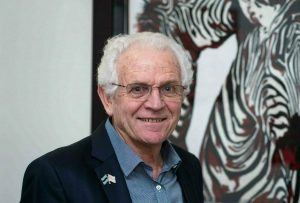By Felicia Richardson
Self-harm among teenagers is a complicated and challenging issue for parents to tackle. It is essential to realize that self-injury behavior is often a result of emotional stress and the reasons for self-injury can vary considerably from one individual to another. Self-harm among teenagers is overwhelmingly increasing, so I would like to offer more insight into this theme. I share my personal experience with self-injury as a teenager, but also insight into what research says.
Understanding self-harm
Self-injury is when you intentionally hurt yourself as a way to deal with emotional pain, trauma, despair, stress or overwhelming feelings. Self-injurious behavior is often secretive, it is inflicted in places where no one will necessarily notice it at first glance, and may include cutting, pricking, burning, scratching, biting, hitting, or other forms of self-harm.
Personal experience
My own journey with self-injury began at a very young age. At the age of two my parents divorced, at the age of four I was exposed to alcohol abuse by my parents and domestic violence. Between the ages of four and 14, I experienced intense rejection by my biological father. There was poverty. I have been through molestation. I could go on and on with the list of incredible trauma I went through as a child. This emotional trauma left me with intense emotional pain, feelings of unworthiness, anger and insecurity.
These emotional scars affected my ability to make friends, the kind of friends I made, the deep desire to fit in, my academic performance, my self-esteem, feelings of unworthiness, of not being loved, and so I can go on.
Unfortunately, I was not exposed to resources at that time to navigate these emotions, and I mostly turned to self-harm, which I also first saw with a group of friends who were basically just the group of kids known as the birds with their wings down.
Trauma
Everyone experiences trauma or rejection in different ways. I am of the opinion that self-injury mostly comes from a place of an untreated post-traumatic or traumatic experience which then results in feelings of depression, frustration, inferiority and helplessness. The group of “friends” I made who were considered the birds with the wings off, each had a unique story, but not so unique that the rest of the group didn’t understand. I think back to the one boy whose parents were lovely but never home. He was the one who also always opened his home for everyone to come and visit. The rejection and desire to feel loved only by his parents drove him to express the pain in other ways. The young girl whose parents fought constantly. The boy who was bullied because he was “poor”. The beautiful girl who had no self-esteem because she was constantly belittled by various people. The girl who was pressured to perform and just couldn’t anymore cope not and developed feelings of inferiority and turned to self-harm. This list goes on and on, but the point I want to make is that I have realized that every young person who turns to self-harm has unprocessed negative feelings that lead to greater emotional challenges. These are also usually young people who feel that they do not have a support system that understands them.
Insights from research

Recent research provides valuable insights into self-injury behavior among teenagers:
Increase: Self-injury has increased in recent years. It is essential that parents equip themselves with knowledge on this issue.
Gender differences: Research shows that self-injury affects both boys and girls and that there are fewer and fewer differences in how self-injury is inflicted. Boys do tend to punch walls or engage in reckless behavior, while girls tend to cut or burn. Unfortunately, research also shows that boys who self-harm are more likely to commit suicide.
Mental health: Research shows that self-harm goes hand in hand with other mental health issues, such as depression, anxiety or a mental disorder problem. It is important to make sure your teenager gets help early if you notice that they are experiencing unprocessed trauma or negative emotions. If you, as a parent, are struggling with unprocessed trauma or constant negative emotions, it is important that you also get help. The impact this can have on your teenager is greater than you realize.
Addiction: Yes, it can unfortunately cause one to become addicted to the feeling. I can testify to this. Research shows that endorphins can be released during self-pity. These endorphins are the body’s natural feel-good chemicals that help reduce stress and anxiety. It can create a temporary feeling of pleasure or relief. This contributes to the addictive nature of self-injury for some individuals.
How parents can help
The first step is not to judge. The second step is to understand self-injury so that you can optimally support your teenager. Here are some tips from personal experience, but also research:
I would like to emphasize how important the role of parents, family, teachers and friends is on this path to healing. Understanding, support and love by the above-mentioned role players is of crucial importance.
Although I didn’t have much support myself, the following helped me heal:
- Therapy: It is really important that your teenager gets along with her or his therapist and also feels that the person understands her/him. The first two psychologists I saw constantly made me feel like they were judging me. I only really started to heal when I ended up with a very loving and passionate play therapist, and later in my life with a life coach.
- Hobbies: I was challenged to really think about what I loved to do and spend more time on it. Help your child discover their passions and pay more attention to them.
- Positive influence: I started attending teenage church. It is important to find a church where your teenager feels they fit in and will not be judged. The more you surround yourself with positive people, the faster the dark cloud over your head becomes lighter.
- Time: Spend as much quality time with your teenager as possible. Do things they like. Encourage companionship. Try your best to meet their challenges and triggers to understand. Write it on a mind map and find solutions together.
- Eating habits: Encourage healthy eating habits. Serotonin, your feel-good hormone, is made in our intestinal tract. Research shows that around 90% of our serotonin is made in our intestinal tract. According to dr. Michael Conlon of the Australian Scientific and Industrial Research Organization (SIRO) says fiber is by far the best route to a happy microbiome (as your intestinal tract and all its micro-organisms are referred to together). Just like serotonin, a whole number of other neuro-substances are also made in the intestinal tract in collaboration with intestinal flora. We are only as happy and healthy as our intestinal tract. Vegetables are the best strategy for a better intestinal flora. Eat vegetables with every meal. Sugar and flour allow the wrong bacteria to thrive. Encourage exercise. It really helps. Probiotics can also help, just make sure they contain enough organisms, otherwise they won’t help at all. It should contain between “one hundred million”, “100,000,000”, “108” or “one billion CFUs”.
There is hope
It is not an easy road to walk, not as a parent or the teenager going through the self-harming habits. People judge easily, especially those who have no understanding of what caused this problem in the first place. Dear parent, dear teenager, I want to tell you today there is hope! I’ve been through this, I’ve tried to take my own life myself, more than once!
Yet I sit here today, in front of my computer, writing this article for you because it really is my heart to see that every young person will take up their rightful space on this earth, that they will realize how worthy they are. That they will realize that they matter, that the Lord created them with a specific purpose in mind. It is truly my heart that they will realize that no circumstance or your past determines who you are or who you should be. You have a choice, and may you choose to love yourself and pursue your dreams. You may choose hope, you may stand up for yourself and your life. You may choose to believe the word of God and what He says about you.
Today I am married to a wonderful man. I am a mother of two beautiful children, I not only passed my matric, but also went on to study and obtained my qualification in marketing. I have been in the workforce for over 11 years and have built a good career for myself. I am internationally accredited as a transformative life coach.
The love for myself and the Lord, true joy and happiness means much more to me than any success, qualification or earthly possessions. I no longer hesitate to take up space because I am HEALTHY. I made sure I healed myself so that I would not “bleed” on people I love the most, who were not the cause of my wounds.
Hold on. There is hope. Just take the first step to healing.
- Felicia Richardson is an internationally accredited life coach, NLP practitioner and Solidarity’s scholar specialist.








